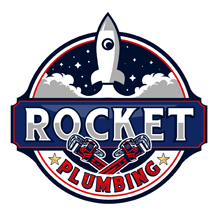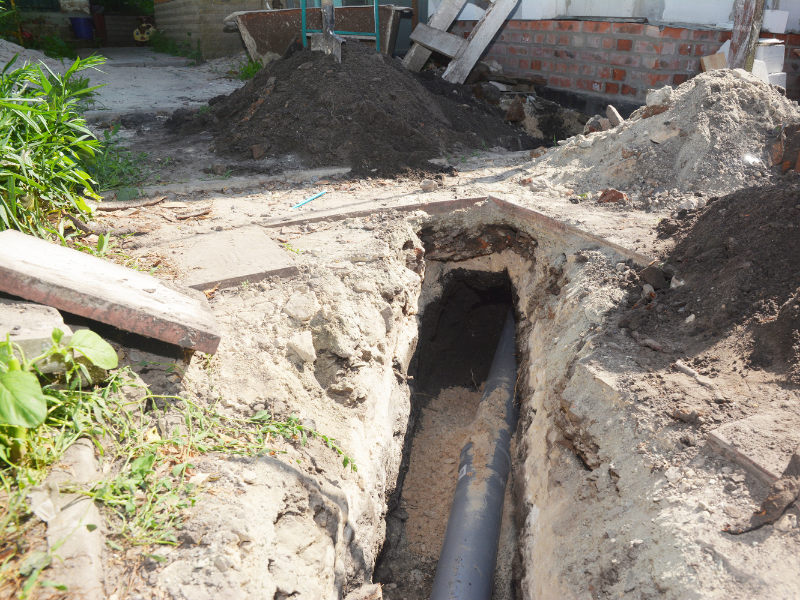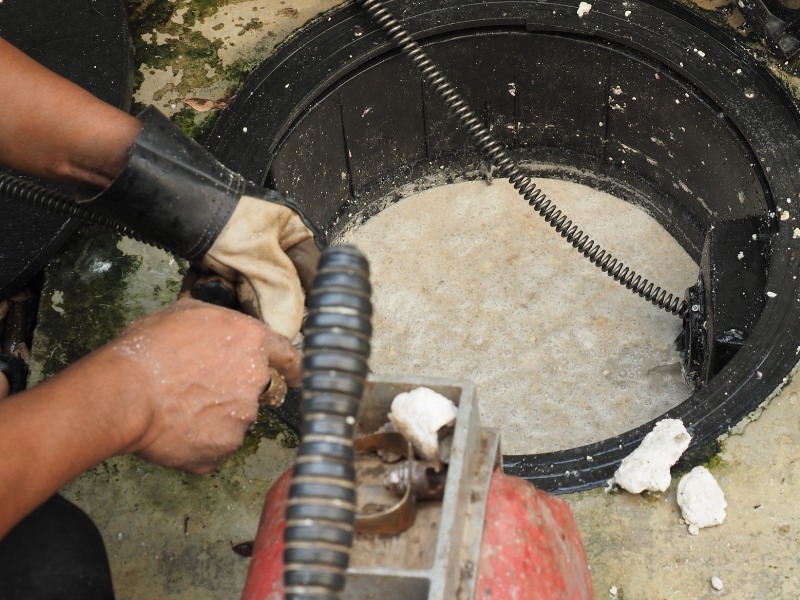How to Tell If Your Sewer Line Is Clogged – Warning Signs & Solutions
A clogged sewer line is one of the most serious plumbing issues a homeowner can face. When your main sewer line is blocked, wastewater has nowhere to go, which can lead to slow drains, foul odors, and even raw sewage backing up into your home. If left unaddressed, a clog can cause extensive damage to your plumbing system, leading to costly repairs and potential health hazards.
Understanding the warning signs of a sewer line clog and knowing what steps to take can help you avoid major plumbing disasters. In this guide, we’ll cover everything you need to know about sewer line clogs, including common causes, how to fix them, and preventative measures to keep your plumbing system running smoothly.
What is a Sewer Line and Why is It Important?
Your home’s sewer line is the main pipe that carries wastewater from your sinks, toilets, and drains to the municipal sewer system or your septic tank. Unlike smaller household drain pipes, which handle wastewater from individual fixtures, the main sewer line is responsible for managing all of your home’s wastewater.
When this crucial pipe becomes clogged, it affects your entire plumbing system, often leading to multiple plumbing issues at once. Understanding the warning signs of a sewer line clog can help you take action before the problem escalates.
Common Signs of a Clogged Sewer Line
1. Slow Draining Fixtures Throughout the House
One of the earliest signs of a sewer line blockage is slow drainage in multiple fixtures. If just one drain (such as a bathroom sink) is draining slowly, the issue is likely localized to that particular drain. However, if multiple drains throughout your home are slow, it could indicate a blockage in your main sewer line.
2. Gurgling Noises from Drains or Toilets
If you hear gurgling noises coming from your drains, sinks, or toilets when using water, it’s often a sign of trapped air caused by a sewer line clog. These noises occur because the blockage prevents wastewater from flowing freely, forcing air bubbles back up through your pipes.
3. Frequent Toilet Backups
A clogged sewer line often results in recurring toilet backups, even after plunging. If your toilet frequently overflows or struggles to flush properly, it could be a sign that the blockage is deep in the sewer line.
4. Foul Odors Coming from Drains or Yard
Sewer gas has a distinct and unpleasant smell. If you notice a strong sewage odor coming from your drains or outside in your yard, it’s a major warning sign that your sewer line is clogged or leaking.
5. Water Backing Up in Other Drains
One of the clearest signs of a sewer line clog is when using one plumbing fixture causes water to back up elsewhere. For example, flushing the toilet might cause water to rise in the bathtub or shower. This happens because the clog is preventing proper drainage, forcing wastewater to move in unexpected directions.
6. Soggy or Sunken Yard Areas
If your sewer line is clogged or leaking, wastewater may seep into your yard, creating soggy or sunken areas. If you notice unexplained wet spots, unusually lush patches of grass, or foul-smelling puddles in your yard, a sewer line issue could be to blame.
7. Rodents or Insect Infestations
Sewer line issues can attract pests such as rats, cockroaches, and flies, which thrive in damp environments. If you notice an increase in pests around your home, it may be a sign that your sewer line is damaged or clogged.
What Causes Sewer Line Clogs?
Several common factors can contribute to a blocked sewer line, including:
- Tree Root Infiltration: Tree roots are naturally drawn to moisture and can grow into sewer pipes, causing blockages and damage over time.
- Grease, Fat, and Oil Buildup: Pouring grease down the drain may seem harmless, but over time, it can harden and create stubborn blockages.
- Flushing Non-Flushable Items: Items like baby wipes, paper towels, feminine hygiene products, and cotton swabs do not break down properly and can easily clog sewer lines.
- Collapsed or Broken Pipes: Older homes may have clay or cast iron pipes that deteriorate over time, leading to partial or complete blockages.
- Foreign Objects: Items such as toys, jewelry, or excessive toilet paper can accidentally make their way into the sewer system, causing clogs.
How to Fix a Clogged Sewer Line
If you suspect a sewer line clog, it’s important to act quickly. Here are some methods to address the problem:
1. Use a Plumber’s Snake
A professional-grade plumbing snake can help break up minor obstructions. However, if the clog is deep in the sewer line, a plumber may need to use specialized equipment.
2. Hydro Jetting
Hydro jetting is a powerful method that uses high-pressure water to remove stubborn blockages, including tree roots and grease buildup, without damaging your pipes.
3. Sewer Camera Inspection
A licensed plumber can use a specialized camera to inspect your sewer line, pinpointing the exact location and cause of the clog. This is one of the most effective ways to diagnose sewer problems.
4. Sewer Line Repair or Replacement
If the clog is caused by broken or collapsed pipes, repairs or full sewer line replacement may be necessary. Trenchless sewer repair methods can minimize disruption to your property while restoring proper function.
Preventing Future Sewer Line Clogs
Preventing sewer line clogs is much easier (and cheaper) than dealing with a major blockage. Here are some proactive steps to keep your plumbing system running smoothly:
- Dispose of grease properly—Never pour grease, fat, or oil down the drain. Instead, let it solidify and dispose of it in the trash.
- Be mindful of what you flush—Only flush toilet paper; avoid wipes, paper towels, and hygiene products.
- Use drain strainers—Install strainers in sinks and showers to catch hair, food particles, and other debris.
- Schedule regular plumbing inspections—A professional plumber can catch small issues before they turn into costly repairs.
- Keep trees away from sewer lines—If planting new trees, choose species with non-invasive roots and keep them at a safe distance from sewer lines.
When to Call a Professional Plumber
If you notice multiple signs of a sewer line clog—such as slow drains, gurgling toilets, or sewage smells—it’s time to call a professional. A licensed plumber can diagnose the problem and recommend the best solution before the issue leads to expensive repairs.
At Rocket Plumbing, we specialize in sewer line inspections, hydro jetting, and trenchless sewer repairs. If you suspect a clog in your sewer line, don’t wait—contact us today for fast, reliable plumbing services!
Need expert sewer line repair or maintenance? Call Rocket Plumbing today or visit RocketPlumb.com to schedule an appointment!



